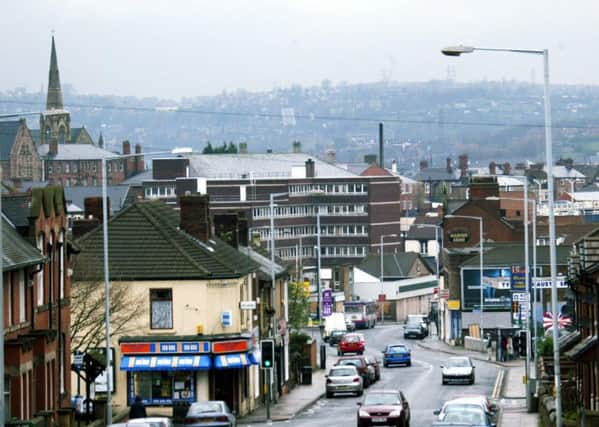GP Taylor: Speaking English is the only way to bridge our divides


What shocked me more was the warning from the headteacher that many of those I was speaking to has no grasp of English.
It was September, the start of a new term and the school had been inundated with the children of economic migrants. So much so, that because this was a faith school and many of the migrants were Catholics from Eastern Europe, local children had to be turned away.
Advertisement
Hide AdAdvertisement
Hide AdIt was an educational nightmare, with dedicated teachers put under incredible pressure to achieve high standards while having students with a poor grasp of English. It meant that instead of getting on with the teaching of reading, writing and maths, teachers had to spend much of the core time on basic principles of English language.
This is not an isolated case. There are many schools breaking under the burden of having to assimilate children from varied backgrounds with poor language skills. Children from cultures where integration into the British way of life is not considered important.
This was highlighted by the controversial and damning report by Dame Louise Casey on integration amongst immigrant communities.
In rural Yorkshire, this is not an obvious problem, but there are schools in our county’s conurbations that are having trouble delivering a first class education system due to the pressure placed on them by children unable to speak English. This is exacerbated by the idea that somehow to mention this is racist. It certainly isn’t racist; it is just a fact.
Advertisement
Hide AdAdvertisement
Hide AdSuch is the pressure on schools due to unfettered immigration that former Cabinet minister Iain Duncan Smith said this: “To cope with the kind of pressure that immigration is placing on the school system the taxpayer is having to find extra school places equivalent to building 27 new average-sized secondary schools or 100 new primary schools.”
That is a staggering and costly amount of money that has to be found each year out of the educational budget. It is a problem that will affect our education system for years to come and something has to be done now.
After studying immigration and population growth using Government data and forecasts, Migration Watch estimates 550,000 extra school places will be needed at a cost of £40bn.
That figure would rise to £100bn by 2020, and £195bn by 2035, raising questions as to whether enough places can be provided. Two thirds of babies born in London have at least one foreign parent while nearly 17 per cent of primary school pupils do not have English as their mother tongue, rising to over half in inner London.
Advertisement
Hide AdAdvertisement
Hide AdAs Dame Louise said at the launch of her report: “People have to be able to speak English and it’s got to be okay to say that.”
She advocates that the promotion of British laws, history and values within the core curriculum in all schools would help build integration, tolerance, citizenship and resilience in our children. More weight should be attached to British values when developing teaching skills and assessing schools’ performance.
However, that does not go far enough and radical action has to be taken. The first should be the closing of all faith-based schools. Education has to be mainstream, taught in English and free from a cultural or religious context. Children should be encouraged to integrate and become part of the wider community. A secular and impartial educational system is the only way of doing this.
In secondary schools, God should be left at the door and religions taught impartially and without bias, as a means of understanding the diversity of faith.
Advertisement
Hide AdAdvertisement
Hide AdLearning our language is the first step to integration. Being fluent in English is an important part of that. Not only does our language give access to learning, but also access to a society without barriers, united by a common tongue.
The Casey report said young female migrants – as well as older women from an Asian background – are the biggest cause for concern and they should be targeted in particular for help learning English. This cannot be left to local schools, and a national initiative has to be in place.
It is time for us to be proud of our language. It has taking many hundreds of years in the making and, like our wonderful county, it is made up of influences from around the world which we should greatly value. English has to be promoted and taught with vigour as it is the glue that will hold the fabric of our varied society together and bring integration and peace.
GP Taylor is a writer and broadcaster and can be followed @GPTaylorauthor.